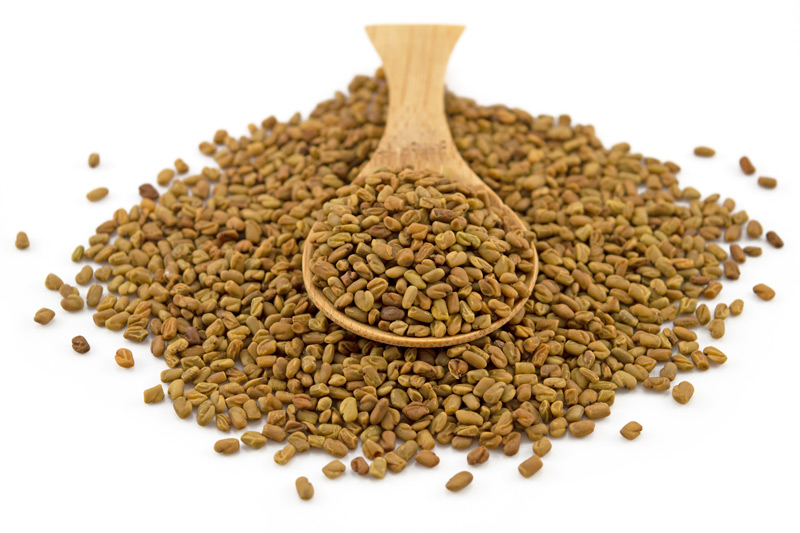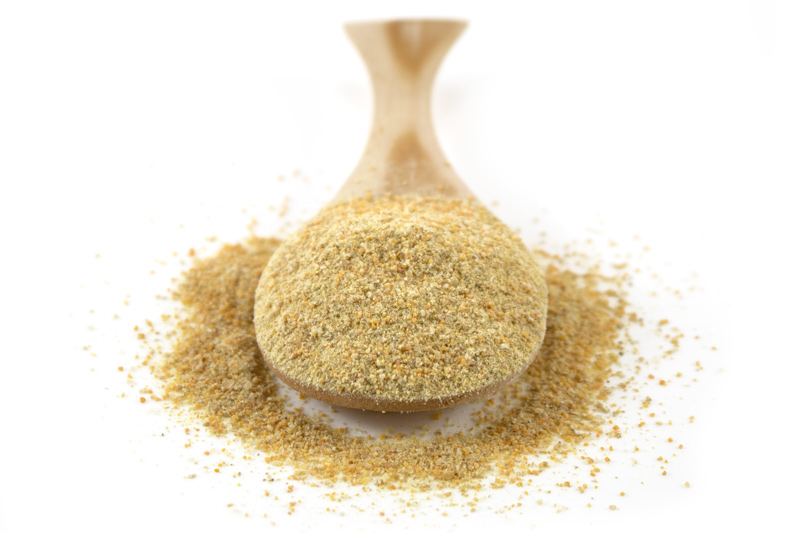Get Me To The Fenugreek!
You may have heard various claims about the many health benefits of Fenugreek, but what’s the truth behind the hype? What is Fenugreek, and can it really boost our health as well as making our food tasty?
Fenugreek (often called Methi) is a plant commonly associated with India, but now also grown in the Mediterranean, the Middle East, China and Canada. The seeds are usually roasted in a pan before being ground – this lessens their natural bitterness and gives them a more rounded, mellow, nuanced flavour. They’re commonly used in a variety of curry dishes, mainly for flavour but also sometimes as a thickening agent; the leaves are also eaten in salads, and the seeds can be sprouted to produce lip-smackingly tasty and wonderfully nutritious microgreens.
We all love a good curry, and it’s good to know that one of the ingredients could be doing good things for us – so let’s take a closer look at how Fenugreek can improve our health and wellbeing….

An awesome nutritional profile
Fenugreek is a good source of Manganese and Magnesium, and has a decent amount of Iron too. Fibre makes up over a quarter of Fenugreek seeds by weight, as does protein. There’s also some Vitamin A, D and B7. Fenugreek contains Inositol, which evidence suggests can significantly reduce panic attacks. Also present is Trigonellene, an alkaloid which can not only protect your brain but even actually reverse some effects of Alzheimer’s disease.
Chinese researchers found in 2013 that the Trigonellene in Fenugreek significantly improved diabetes by decreasing blood glucose and lipid levels and increasing insulin sensitivity and insulin content. The soluble fibre in Fenugreek is excellent for diabetics as it slows down the digestion and absorption of carbohydrates. Indian scientists discovered that adding defatted Fenugreek seed powder to the daily diet of patients with Type 1 Diabetes significantly reduced their fasting blood glucose levels, and it also had a fantastic effect on their serum cholesterol. All this makes Fenugreek a wise choice for use by diabetics.
Fenugreek has proved excellent for reducing the effects of Polycystic Ovary Syndrome and also has a marked effect on the severity of dysmenorrhea (menstrual pain). It contains Choline, which plays a critical role during foetal development. After birth, Fenugreek has been shown to increase the production of breastmilk. A study carried out by researchers at the University of Sydney also found that Fenugreek may be excellent at boosting female libido.
A marked improvement on blood cholesterol
The authors of a roundup of the available medical literature on Fenugreek’s effect on cholesterol levels summarised their findings by saying “Fenugreek supplementation significantly improved lipid profile [and] could be considered as an effective lipid-lowering medicinal plant.” Researchers at the University of Michigan found that the steroidal saponins in fenugreek seeds probably slow the absorption of cholesterol in the intestines as well as the rate at which the liver produces the substance.
May be a potent weapon against cancer
Research published in 2009 found that Fenugreek is superb at bringing about the death of cancer cells. A paper from 2018 highlighted Fenugreek’s therapeutic potential against breast cancer, and a report from the American Association for Cancer Research identified the compound Diosgenin as pivotal to this effect on breast cancer cells. Fenugreek also appears to be a powerful weapon against prostate cancer, and research is ongoing to determine its role in the fight against a range of other cancers.
Great news for all you gym bunnies – Fenugreek has been shown to massively improve upper and lower-body strength, reduce body fat percentage, and improve overall body composition when compared to a placebo group. Another trial from 2020 found participants taking 600mg of Fenugreek extract daily Fenugreek increased lean muscle mass by 1.8% while reducing body fat by 1.4%. Furthermore, researchers noted these changes were obtained with no clinical side effects.







